The FT’s summer books 2016

Simply sign up to the Life & Arts myFT Digest -- delivered directly to your inbox.

Alec Russell
Editor of FT Weekend
I will shamelessly abuse my position and plump for two outstanding novels. Robert Harris’s Dictator (Arrow), the third and finest of his Cicero trilogy, is a pitiless and masterful dissection of the way ideals, careerism and ambition jockey for primacy in a great politician’s mind. Fittingly, I finished it shortly before the Tory and Labour civil wars burst into the public domain. There is nothing new . . . In need of escapism, I took the advice of Nilanjana Roy, our new columnist, and turned to Reputations (Bloomsbury), by the Colombian Juan Gabriel Vásquez. It is an account of an old cartoonist eyeing his past and the shifting forms of perception, memory and truth. Brilliant.
. . .
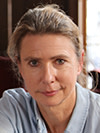
Lionel Shriver
Author of ‘The Mandibles’
There’s an arbitrariness to choosing any “best” book, but I’d nominate Hannah Kohler’s debut novel The Outside Lands (Picador) as the “most surprising” 2016 release that I’ve encountered so far. In this Vietnam-era story, a California family is imploded first by private tragedy, then by the war itself. Yet the author is a Brit writing about a time before she was born. You’d never know it. Her ear for American dialogue is flawless, her historical details spot on. The quality of the writing, too, is astonishing. I wasn’t exactly in the mood to re-enter the 1960s of my youth, but Kohler won me over. Should you feel a similar resistance to this oft-visited subject matter, get over it.
. . .

Yuval Noah Harari
Author of ‘Sapiens’
Until 1979 few American soldiers had lost their lives in the Middle East, but since 1979 few have lost their lives anywhere else. In America’s War for the Greater Middle East: A Military History (Random House), Andrew Bacevich connects the numerous American interventions in the region — from Afghanistan to Somalia and from Lebanon to Libya — into a coherent story with its own maddening logic. Why has the US been drawn again and again to intervene militarily in the Middle East, and why despite its overwhelming strength has it been repeatedly frustrated in its ambitions?
. . .

Lucy Kellaway
FT columnist
David Aaronovitch grew up just up the road from me in north London in the 1960s. We were all leftwing and all forced to play with the same badly made Russian wooden toys, but his parents were the real thing — members of the Communist Party of Great Britain. In Party Animals (Cape) he describes what it is like to grow up in a household of political fanatics, and what happens when their ideals fall to pieces. His account of the collapse of the party and the brave but deluded people who ran it, of his distant, philandering father and his impossible mother, is by turns affectionate, brutal and hilarious.
. . .

Peter Frankopan
Author of ‘The Silk Roads’
I absolutely loved Mary Beard’s SPQR: A History of Ancient Rome (Profile). It is a sparkling book that brings the past to life. I remember feeling like I’d been electrocuted the first time I went to one of Beard’s lectures at Cambridge many years ago — and this book provides the same thrill and excitement. Glorious.
. . .

Sarah Bakewell
Author of ‘At the Existentialist Café’
More chilly than summery perhaps, but the richest book I’ve read recently is Second-Hand Time , by Svetlana Alexievich (translated by Bela Shayevich for Fitzcarraldo Editions). A symphony of witnesses’ voices relates the collapse of Soviet communism and the disillusionment of those who sacrificed everything for a “better world” only to end up with nothing. “No one is going to write a book about us — the crowd, the masses,” says one. Well, Alexeivich has. She rarely introduces her own voice, yet her intensely humane sensibility makes this a non-fiction masterpiece.
. . .
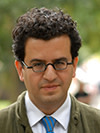
Hisham Matar
Author of ‘The Return’
The Confines of the Shadow by Alessandro Spina (Darf) is a wonderful and rare book. It contains three works of fiction in which the Libyan author, writing in Italian under a nom de plume, chronicles the moment when, at the dawn of the 20th century, Italy crossed the Mediterranean Sea and invaded Libya. Like Lampedusa’s The Leopard and Satta’s The Day of Judgment, it is a work interested in the texture and weight of history on individual life; it has just as much to tell us about the past as it does about the present.
. . .
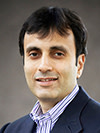
Ruchir Sharma
Author of ‘The Rise and Fall of Nations’
George HW Bush has been described as America’s best one-term president, a notion reinforced by Jon Meacham’s biography Destiny and Power (Random House). The best passages are about Bush’s dramatic fall between early 1991, when his popularity ratings were stratospheric after the US victory in the Gulf war, and late 1992, when the president was cast as out of touch with everyday American concerns and lost his bid for a second term. Meacham vividly captures the tribulations of that period and offers a remarkable tale of how quickly fortunes can change even for the most accomplished statesmen.
. . .
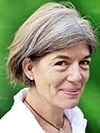
Claire Messud
Author of ‘The Woman Upstairs’
One of the most powerful and resonant books I’ve read this year is Edna O’Brien’s haunting novel The Little Red Chairs (Faber). Part myth, part social realism, this forceful and at times brutal book imagines what would have happened had the Serbian war criminal Radovan Karadzic been in hiding in rural Ireland. The narrative then expands outwards to become a moving exploration of the lives of immigrants in contemporary Ireland and the UK; which makes it a particularly important novel in these dark days.
. . .
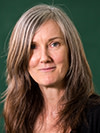
Nell Zink
Author of ‘Mislaid & The Wallcreeper’
Private Citizens , the first novel from Stanford grad Tony Tulathimutte (William Morrow), explores four sensitive minds trapped in a world of unrelenting competition (Stanford and environs). In this lovingly portrayed hell, the body is excess baggage, and self-doubt poses dangers so grave only a writer would risk it. It’s not a satire, but an eloquent social novel bristling with logic. Plus if you’re old enough to remember when VCs were the Viet Cong, it will catch you up.
. . .

Arianna Huffington
Author of ‘The Sleep Revolution’
In 2013’s Give and Take, Wharton professor Adam Grant showed that those who give their time and effort to others end up achieving more success than those who don’t. In Originals (WH Allen), he uses surprising studies and riveting stories to brilliantly show us how to champion new ideas, bust persistent myths that hold us back and change not only our lives, but our world. It’s a fascinating, eye-opening read that will help you not just recognise your own unique gifts, but find the strength to challenge conventional wisdom to bring them to life.
. . .

Philippe Sands
Author of ‘East West Street: On the Origins of Genocide and Crimes Against Humanity’
It is impossible to resist the embrace of the remarkable, intimate memoir written by Hisham Matar, a personal journey through family and country into the trauma that is modern Libya. A son seeks certainty and finality on a question that has haunted him for a quarter of a century: when did his father Jaballa cease to exist? The Return (Viking) is devastating yet gentle, a meditation on love and family, on life and country. No more beautiful, distressing or humane book can be imagined.
. . .
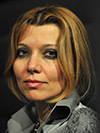
Elif Shafak
Author of ‘The Architect’s Apprentice’
The crisis in Syria is one of the greatest tragedies of our times and yet many people around the world have become numb, almost indifferent to it as the war continues with no end in sight. Against this emotional detachment, it is crucial to reveal the human stories behind the news — and in The Morning They Came For Us (Bloomsbury), Janine di Giovanni does this with heartbreaking eloquence. How did millions of Syrians — both ordinary people and the elite — carry on from one day to the next? As Giovanni gives us the answers, it is clear that she is far more than merely a visitor. Her account of Syria is a testimony to the power of empathy, conscience and understanding.
. . .

Viet Thanh Nguyen
Author of ‘The Sympathizer’
I try not to read thrillers because they tend to keep me up to all hours of the night, and I don’t have the time. Bill Beverly’s Dodgers (No Exit Press) broke through my wall of self-denial and, yes, I did stay up late for two nights to finish it. Four black boys in a gang from Los Angeles are given a job: drive across the country to carry out a hit on a black judge. What can go wrong? Everything, of course. The prose is tight, the dialogue rhythmic, the pacing fast, the violence measured, and the ending unexpected. So what if I lost some sleep?
. . .
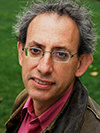
Ken Kalfus
Author of ‘Coup de Foudre’
Shrinking ice caps, climate change and habitat loss demand that we rethink our relationship with the natural world. We also have to rethink what it means to be human — a species that has always presumed ownership of the land, sea and sky. In his novel The Lamentations of Zeno (Verso), the German author Ilija Trojanow writes about a glaciologist who’s lost the glacier he’s studied his entire career. It has melted away. The devastated scientist joins an Antarctic tour ship as the onboard ice expert. In these frigid waters, his rueful, existential, sometimes comic meditations may resonate with the reader who reflects on our battered planet’s future.
Economics
The Only Game in Town: Central Banks, Instability, and Avoiding the Next Collapse, by Mohamed El-Erian, Yale, RRP£18.99/Random House, RRP$28
Central banks saved the world economy from collapse. But they cannot create enduring and stable economic growth. What is needed now, argues this distinguished and knowledgeable author, are “invigorating structural reforms, rebalancing aggregate demand, lifting crippling debt overhangs, and modernising regional and global architectures”. He is right.
. . .
Makers and Takers: The Rise of Finance and the Fall of American Business, by Rana Foroohar, Crown Business, RRP$30
Finance is a good servant but a bad master. That is the case made in this powerfully argued book. In recent decades, alas, finance has risen to dominate the US economy, not just directly, via the growth of its often unproductive activities, but indirectly, via its impact on corporate management and politicians. As Foroohar shows, the results have included soaring inequality, weakening investment and faltering innovation.
. . .
Money Changes Everything: How Finance Made Civilization Possible, by William Goetzmann, Princeton, RRP£24.95/$35
This fascinating book rehabilitates finance by examining its 5,000 years of history. It argues that finance is the handmaiden of civilisation. Among its products were the “development of writing, recording, calculation, and printing”. Why is finance such an important social innovation? The answer is that it allows us to move “economic value forward and backward through time”. That allows humans to plan their lives, both individually and collectively.
. . .
The Rise and Fall of American Growth, by Robert Gordon, Princeton, RRP£29.95/$39.95
This is an extremely important book. It shows that a wide a range of unrepeatable technological, economic and social transformations drove an exceptional rise in prosperity between 1870 and 1970. It also argues that the narrower recent developments in communications and information technologies, albeit dazzling, have not had — and will not have — a comparable effect on prosperity. Today’s techno-optimists should beware: their enthusiasm is rooted in ignorance of the relevant past.
. . .
The End of Alchemy: Money, Banking and the Future of the Global Economy, by Mervyn King, Little Brown, RRP£25/WW Norton, RRP$28.95
Mervyn King, former governor of the Bank of England, has chosen not to write another memoir of the global financial crisis; instead, he gives us a remarkable account of the economic forces behind it. In drawing lessons, he notes that the promise made by banks to turn illiquid and risky assets into liquid and safe liabilities is, like other forms of alchemy, fraudulent. Banks have to rely on central banks as lenders of last resort. To discipline this process, Lord King suggests that the central bank should set the terms on which it would make loans in advance, acting as a “pawnbroker for all seasons”.
. . .
Bourgeois Equality: How Ideas, not Capital or Institutions, Enriched the World, by Deirdre McCloskey, University of Chicago, RRP£31.50/$45
The distinguished economic historian Deirdre McCloskey has written a sparkling book. She argues that ideas have been the drivers of the astounding and increasingly widely shared economic progress of the past two centuries. The most important idea of all, she argues, is that of “bourgeois equality”, the belief that everybody is entitled to better himself or herself. She makes a convincing case, though the contrast between ideas and institutions is exaggerated: equality before the law is, for example, an idea embedded in an institution.
. . .
Global Inequality: A New Approach for the Age of Globalization, by Branko Milanovic, Harvard, RRP£22.95/$29.95
Branko Milanovic’s outstanding book adds significantly to recent works by Thomas Piketty, Anthony Atkinson and François Bourguignon. Milanovic concludes that inequality is rising within most countries, although global inequality, albeit huge, has been falling. Unfortunately, he sees no end to the current upswing in inequality in the high-income countries. This creates disturbing political dangers.
. . .
The Money Problem: Rethinking Financial Regulation, by Morgan Ricks, University of Chicago, RRP£28.95/$38
This is yet another book that identifies the central problem of the financial system as being its vulnerability to panics. The solution, argues the author, lies in improved “monetary system design”. The essence of his intriguing plan is twofold. First, the government would guarantee all deposits, charging risk-based insurance premia. Second, only regulated banks would be allowed to offer liquid liabilities, defined as debt liabilities with maturity of less than a year. In this way, argues Ricks, government would regain control over money.
. . .
The Rise and Fall of Nations: Ten Rules of Change in the Post-Crisis World, by Ruchir Sharma, Allen Lane, RRP£25/WW Norton, RRP$27.95
Ruchir Sharma is head of emerging markets at Morgan Stanley Investment Management. In this lively and informative book, he explains his system of 10 rules for identifying economies with good potential. Among the striking conclusions is his bearishness about China, largely because of its huge and growing indebtedness. But the world economy as a whole is now facing important economic headwinds, he argues.
. . .
Empire of Things: How We Became a World of Consumers, from the Fifteenth Century to the Twenty-first, by Frank Trentmann, Allen Lane, RRP£30/Harper, RRP$40
Ours are consumer societies. But this is neither a recent phenomenon, nor an American invention. In this important book, Trentmann argues that our increasingly complex consumer societies have evolved over five centuries: today, he notes, a typical German owns 10,000 objects. “The empire of things,” he argues, “expanded in part because possessions became increasingly important carriers of identity, memory and emotions.”
Martin Wolf

Business
Alibaba: The House that Jack Ma Built, by Duncan Clark, Ecco, RRP£18.99/$27.99
If Alibaba, the sprawling online retailer, is one of China’s most interesting companies, then Jack Ma, its founder, is one of the country’s most fascinating entrepreneurs. Clark has been witness to the rise of both since 1999. Reviewing the book for the FT, Charles Clover said it was a “must-read for anyone hoping to navigate China’s new economy”.
. . .
Only Humans Need Apply: Winners and Losers in the Age of Smart Machines, by Thomas Davenport and Julia Kirby, Harper Business, RRP$29.99/£20
The human race’s comeback was overdue after the recent wave of books on the rise of the robots, and Davenport and Kirby provide a fine call to action for flesh-and-blood workers by emphasising the collaborative possibilities of new technology. The spread of cognitive computing and artificial intelligence will threaten jobs, they concede, but the book lays out ways humans can meet and profit from the challenge.
. . .
Dear Chairman: Boardroom Battles and the Rise of Shareholder Activism, by Jeff Gramm, HarperCollins, RRP£20/$29.99
A book on US corporate governance built round a series of letters from shareholders to company bosses is an unlikely beach read. But Gramm, who himself runs a hedge fund, is an engaging and critical guide to a century of US activism and activists, including Ross Perot and Warren Buffett.
. . .
Originals: How Non-Conformists Move the World, by Adam Grant, Viking, RRP$27/WH Allen, RRP£20
Grant stamps his hallmark of original research, fine writing and practical fresh insights on to this book about how innovators make breakthroughs — not always in the predictable ways you may think. “Procrastinate strategically” is one nugget that will please anyone who has ever pushed a deadline.
. . .
The 100-Year Life: Living and Working in an Age of Longevity, by Lynda Gratton and Andrew Scott, Bloomsbury, RRP£18.99/$28
Our obsession with what millennials are thinking and doing means we have not truly thought about what will happen at the other end of our — and their — lives. Gratton and Scott, London Business School professors, offer thought-provoking insights and practical guidance about how living to 100 will change attitudes to careers, personal finance, corporate organisation and relationships.
. . .
The Industries of the Future, by Alec Ross, Simon & Schuster, RRP£20/$28
Ross, a former innovation adviser to Hillary Clinton, set out to write the book he wished he had had as a young man to alert him to the coming digital revolution. FT reviewer Stephen Cave called it “lucid and informed” on everything from genomics to the blockchain, but readers will have to reconvene in 20 years to decide just how prescient he is.
Andrew Hill

Politics
Wish Lanterns: Young Lives in New China, by Alec Ash, Picador, RRP£16.99
The people currently ruling China lived through the upheavals of the Cultural Revolution and Tiananmen. The millennials who will shape China’s future face very different pressures and challenges. In a study that is both literary and political, Ash tries to understand China’s future through the lives and aspirations of its rising generation.
. . .
CEO, China: The Rise of Xi Jinping, by Kerry Brown, IB Taurus, RRP£20/$28
Xi Jinping, president of China, is now undoubtedly one of the most powerful men in the world. This is the first biography of Xi in English and provides a lucid and readable account of his background, rise to power and political programme.
. . .
American Maelstrom: The 1968 Election and the Politics of Division, by Michael Cohen, OUP, RRP£18.99/$29.95
This year’s presidential election campaign has revealed a bitterly divided and radicalised US. Those searching for precedents will enjoy Cohen’s sparkling history of the dramatic and violent 1968 election, which saw the assassination of Bobby Kennedy, a riot at the Democratic convention and the eventual triumph of Richard Nixon.
. . .
Syria Burning: A Short History of a Catastrophe, by Charles Glass, Verso, RRP£8.99/$16.95
The civil war in Syria is simultaneously a humanitarian catastrophe and an international crisis. Glass, a veteran observer of the Middle East, explains briefly and lucidly how the disaster has unfolded. His book is angry but non-partisan, and stresses the role that foreign powers have played in ripping Syria apart.
. . .
Blood Year: The Unraveling of Western Counterterrorism, by David Kilcullen, Hurst, RRP£9.99
David Kilcullen, an Australian military officer and academic, was deeply involved in the US counterinsurgency campaign in Iraq. His engrossing book combines personal reminiscence with non-partisan analysis of what went wrong — and warns of the risk of further deterioration.
. . .
Alter Egos: Hillary Clinton, Barack Obama and the Twilight Struggle Over American Power, by Mark Landler, WH Allen, RRP£20/Random House, RRP$28
Landler’s closely reported study of the making of US foreign policy over the past eight years serves both as a study of the Obama years and a preview of a possible Clinton presidency — with the strong suggestion that Hillary’s instincts are notably more hawkish than those of Obama.
. . .
Britain’s Europe: A Thousand Years of Conflict and Cooperation, by Brendan Simms, Allen Lane, RRP£20
Anyone seeking to understand the deeper political and historical forces behind Britain’s referendum on EU membership would profit from reading Simms’s lively and learned book, which shows how Britain’s history has always been shaped by cultural, economic and political developments in Europe.
. . .
And The Weak Suffer What They Must? Europe, Austerity and the Threat to Global Stability, by Yanis Varoufakis, Bodley Head, RRP£16.99/Nation Books, RRP$27.99
Varoufakis, the dashing former Greek finance minister, has emerged as a hero of the anti-austerity left since his confrontational effort to reject the austerity policies imposed on Greece. But he is also an academic economist — so this book is part anecdote, part polemic and part a closely argued and interesting critique of the flaws in the design of the European single currency.
Gideon Rachman

History
Joseph Chamberlain: International Statesman, National Leader, Local Icon, edited by Ian Cawood and Chris Upton, Palgrave MacMillan, RRP£63/$100
Making sense of late 19th-century and 20th-century British politics demands an understanding of Joseph Chamberlain, who split the Liberals over Irish Home Rule and the Conservatives over Tariff Reform. This is a stimulating collection of essays that look at his career as a Birmingham municipal reformer as well as his roles on the national and imperial stage.
. . .
The Cultural Revolution: A People’s History 1962-1976, by Frank Dikötter, Bloomsbury, RRP£25/$32
Dikötter, a Dutch-born historian based in Hong Kong, completes his three-volume history of Mao Zedong’s China with this fast-paced narrative of the Cultural Revolution. His account of the convulsions in the decade up to Mao’s death in 1976 is fluent, compelling and based on a wide range of evidence.
. . .
The Myth of the Andalusian Paradise: Muslims, Christians and Jews under Islamic Rule in Medieval Spain, by Darío Fernández-Morera, EDS Publications, RRP£25/ISI Books, RRP$29.95
Medieval Islamic Spain basks in a reputation for being well ahead of its time as an enlightened polity that promoted harmony among its three religious faiths. In what Hispanist scholars are hailing as the most important book on the subject in many years, Fernández-Morera, a Northwestern University historian, concludes that this reputation is much exaggerated.
. . .
Elizabeth: The Forgotten Years, by John Guy, Viking, RRP£25/$35
Scholars and general readers alike will relish this fresh, illuminating portrait of one of England’s greatest monarchs as she confronts foreign and domestic threats in the last two decades of her 45-year reign. Guy, a leading authority on the Tudor period, uses Elizabeth’s handwritten letters and other rarely exploited primary sources to impressive effect.
. . .
The Life of Louis XVI, by John Hardman, Yale, RRP£25/$40
A lifetime’s learning and love for 18th-century French history elevate Hardman’s biography into the fullest, most convincing portrait of Louis XVI in any language. Hardman shows that the king, felled by the 1789 Revolution, was flawed but by no means the lazy, dull-witted monarch of contemporary and historical caricature.
. . .
The Habsburg Empire: A New History, by Pieter Judson, Harvard University Press, RRP£25/$35
This is an engaging reappraisal of the empire whose legacy, a century after its collapse in 1918, still resonates across the nation-states that replaced it in central Europe. Judson rejects conventional depictions of the Habsburg empire as a hopelessly dysfunctional assemblage of squabbling nationalities and stresses its achievements in law, administration, science and the arts.
. . .
The War on Alcohol: Prohibition and the Rise of the American State, by Lisa McGirr, WW Norton, RRP£18.99/$27.95
McGirr’s ambitious, energetic history casts the 1920-33 Prohibition era in a new light, going beyond familiar images of bootlegging, speakeasies and crime syndicates. The Harvard professor contends that Prohibition had profound long-term consequences, including the growth of a more powerful, activist federal government.
. . .
The ‘Conspiracy’ of Free Trade: The Anglo-American Struggle over Empire and Economic Globalisation 1846-1896, by Marc-William Palen, Cambridge, RRP£64.99/$99.99
In a US election year thick with controversy over the impact of free trade and globalisation on jobs and wages, Palen’s absorbing study of the 19th-century version of these debates is timely. The Exeter university historian contrasts the British commitment to free trade with what were the then dominant currents of US economic nationalism and protectionism.
. . .
India’s War: The Making of Modern South Asia 1939-1945, by Srinath Raghavan, Allen Lane, RRP£30/$40
Raghavan’s panoramic and richly detailed book deserves the accolades that it is receiving as the most comprehensive account of the subcontinent’s experiences in the second world war. A historian at King’s College London, Raghavan unearths much new detail and displays a masterful grasp of wartime diplomacy and economics.
. . .
The Great Departure: Mass Migration from Eastern Europe and the Making of the Free World, by Tara Zahra, WW Norton, RRP£18.99/$28.95
Erudite and exciting, Zahra’s book recounts how enormous numbers of eastern Europeans migrated to the Americas between the mid-1800s and the second world war. In a work with obvious resonance for our times, Zahra, a University of Chicago historian, combines analytical depth with an impressive breadth of personal human stories.
Tony Barber
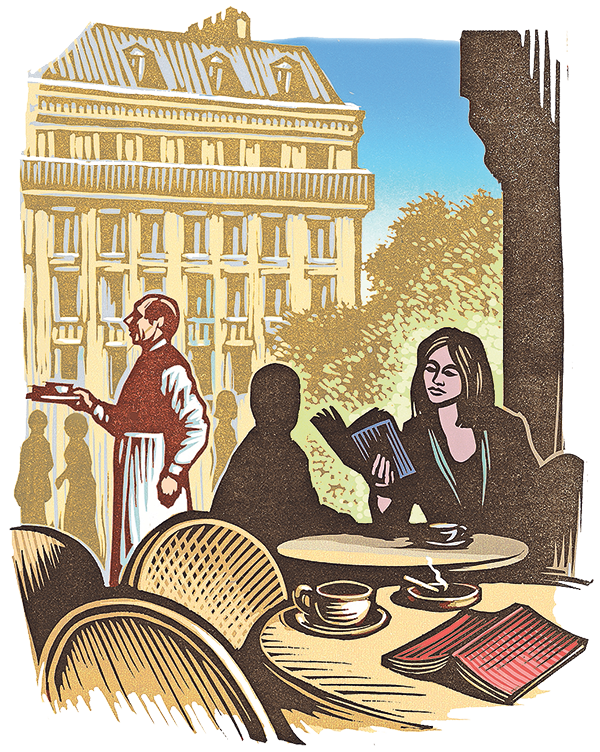
Science
The Serengeti Rules: The Quest to Discover How Life Works and Why It Matters, by Sean B Carroll, Princeton, RRP£18.95/$24.95
Carroll, a molecular biologist and geneticist, describes how biological systems are regulated on vastly different scales, from wildlife on the great African plains to microscopic cells within a living organism. These “Serengeti rules” are not hard and fast, like those in physics. But they can help predict, for example, the effect of reintroducing extinct species into an ecosystem.
. . .
Black Hole Blues and Other Songs from Outer Space, by Janna Levin, Bodley Head, RRP£17.99/Knopf, RRP$26.95
Levin, a professor of astronomy and physics at Columbia University, describes the scientific background to the first detections of gravitational waves — ripples in the fabric of space-time — announced this year. Her account of the human relationships and political arguments behind the research is excellent, too.
. . .
Pinpoint: How GPS is Changing Our World, by Greg Milner, Granta, RRP£14.99/WW Norton, RRP$27.95
The riveting story of how the Global Positioning System evolved from a US military project to make bombing more accurate into a global utility underpinning the world’s communications and transport infrastructure. Milner also makes fascinating side excursions, for example into the ancient navigation systems that guided Polynesians around Pacific islands and into the way satnav affects the human brain.
. . .
The Gene: An Intimate History, by Siddhartha Mukherjee, Bodley Head, RRP£25/Scribner, RRP$32
Mukherjee follows up The Emperor of All Maladies, his Pulitzer Prize-winning book on cancer, with a sweeping history of genetics that takes us from the pioneering work of Gregor Mendel through early 20th century eugenics, the Watson-Crick discovery of DNA and on to the current “gene editing” revolution. He looks ahead with some ethical trepidation to the future use of artificial intelligence for reading and writing DNA.
. . .
Dark Matter and the Dinosaurs: The Astounding Interconnectedness of the Universe, by Lisa Randall, Bodley Head, RRP£25/Ecco, RRP$29.99
Randall, another physics professor with a gift for storytelling, links the demise of the dinosaurs to the sun’s passage 66m years ago through a thin disk of “dark matter” in our Milky Way galaxy. That dislodged a gigantic rock from its orbit in the outer reaches of the solar system and hurled it towards the sun, until Earth got in the way. The theory is speculative but Randall tells it with great verve.
Clive Cookson

Art
Francis Bacon: Catalogue Raisonné, edited by Martin Harrison, Heni Publishing, RRP£1,000/The Estate of Francis Bacon, RRP$1,500
Art book of the year, perhaps the decade, this showcases for the first time Bacon’s entire oeuvre. A five-volume, magnificently produced beacon of accessible scholarship, it will transform our understanding of how the great painter of “exhilarated despair” pushed postwar painting-as-sensation against the limits of representation.
. . .
Hieronymus Bosch, Painter and Draughtsman: Catalogue Raisonné, edited by Matthijs Ilsink, Yale University Press, RRP£100/$150
The tiny Noordbrabants Museum traded erudition for loans to stage the biggest ever Bosch retrospective for the 500th anniversary of his death. This catalogue raisonné marvellously expands on that revelatory exhibition, with exquisite reproductions of the bizarre, proto-surreal, tragicomic late-medieval images that triumphantly assert the freedom of the mind.
. . .
The Vanishing Man: In Pursuit of Velázquez, by Laura Cumming, Chatto, RRP£18.99
I read this at one go: a gripping triple narrative spinning from the Spanish Habsburg courts to 19th-century Edinburgh and New York, where a bookseller becomes tragically ensnared by ownership of a portrait, to Cumming’s own relationship with painting, evoked with the lightest touch but real seriousness of purpose.
. . .
David Hockney: 82 Portraits and 1 Still-Life, edited by Tim Barringer and Edith Devaney, Royal Academy, RRP£30/$45
Cool, funny, opinionated, this engaging volume accompanies Hockney’s current show at the Royal Academy but goes far beyond an exhibition catalogue to consider through interviews, essays and scores of images his six-decade involvement with portraiture, and the historical, cultural and emotional contexts in which he has always worked.
Jackie Wullschlager

Architecture and design
A Burglar’s Guide to the City, by Geoff Manaugh, Farrar, Straus and Giroux, RRP£10.99/$16
Burglars, suggests Manaugh, see the city in a different way to the rest of us. They have a far more sophisticated understanding of the permeability of architecture — the fire escapes, the service ducts, the vaults and the sewers. Studying brilliant bank robbers and bungling burglars, this is a fascinating look at the city from its underworld that will change the way you look at buildings.
. . .
Last Futures, by Douglas Murphy, Verso, RRP£20/$29.95
The 1960s and 1970s were, according to Douglas Murphy, the last days of the future. The avant garde visions of radically modern cities, biodomes, space stations and massive urban machines embodied emerging environmental angst, the space age and the big bang of the welfare state. The visions may have been rarely realised but they have come back to haunt us, from Stewart Brand’s Whole Earth philosophy to Silicon Valley’s tech campuses. An archaeology of the architectural future.
. . .
Breuer, by Robert McCarter, Phaidon, RRP£100/$150
With the former Whitney Museum in New York now rechristened as the Met Breuer, the Hungarian-born modernist’s name has been firmly placed in the public consciousness. Breuer’s tough, brutalist designs were sculptural and expressive, and their ambition and scale has come back into fashion. This is a serious study, a book as heavy and monumental as Breuer’s buildings.
. . .
Common Sense, by Andrew Todd, Right Angle, RRP$17/$25
Using the theatre and space for performance as a tool to crack the understanding of architecture as a common ground for humanity, this is almost a primer. Humane, opinionated and frequently very funny, it’s a rare architecture book that both provokes and entertains.
Edwin Heathcote

Film
Silent Women: Pioneers of Cinema, edited by Melody Bridges and Cheryl Robson, Supernova Books, RRP£14.99/Aurora Metro Press, RRP$32.95
You may come to this spry slice of film history prepared to celebrate a handful of women who helped shape the movies in their blinking infancy. The surprise of the essays collected here is their sheer volume in every corner of a business apparently better able to accommodate female talent then than now.
. . .
Orson Welles, Volume 3: One Man Band, by Simon Callow, Jonathan Cape, RRP£25/Viking, RRP$40
The third volume of Callow’s rolling biography tracks its former boy genius from 1945 into the 1960s — finding him ever more discounted as a director, fated to careen bad-temperedly through other people’s films. Welles would surely be delighted at the scale of Callow’s endeavour. We should be too.
. . .
Her Again: Becoming Meryl Streep, by Michael Schulman, Faber, RRP£14.99/Harper, RRP$26.99
Less scurrilous than promised by the reported anger of its subject, Schulman’s biography turns out to be an admiring but frank Hollywood origin story. Following Streep in her long journey from New Jersey cheerleader to Oscar winner (her first for the 1979 film Kramer vs Kramer), this is above all a tribute to smart, steadfast professional judgment.
. . .
West of Eden: An American Place, by Jean Stein, Jonathan Cape, RRP£20/Random House, RRP$30
Stein tells an old story: one about the murky early years of Hollywood and dark psychic hinterland of Los Angeles. But as a minor player in that tale herself — her father ran the talent agency that became the conglomerate Universal — her strange brew of interview subjects brings novelistic riches. The result may be more compelling than any movie you will see this year.
Danny Leigh
Fiction
The Sellout, by Paul Beatty, Oneworld, RRP£12.99/Picador, RRP$16
Beatty won the 2016 National Book Critics Circle Award for Fiction for this dazzling contemporary satire about an African-American fruit farmer who unwittingly becomes a slave-owner. Imagining a world of resegregation and reverse busing, The Sellout is a “howl-a-page assault on the pieties of the race debate in America”, wrote Simon Schama in the FT.
. . .
Addlands, by Tom Bullough, Granta, RRP£14.99/Dial Press, RRP$27
Seventy years on a Welsh sheep farm may not sound like a scintillating premise, but the FT’s reviewer found Addlands to be a “a quiet, rural novel of enormous power”. With a profound sense of place, it traces the lives of three generations through change — the arrival of electricity, and later, second homers — and continuity.
. . .
Queen of the Night, by Alexander Chee, Michael Joseph, RRP£14.99/Houghton Mifflin Harcourt, RRP$28
As sumptuous and operatic as the colourful 19th-century world it describes, this is the story of Lilliet, a singer famed for her “falcon soprano” — a voice that sounds like a mezzo until it reaches a surprising upper register — who finds herself compelled to uncover who has betrayed her insalubrious past. Richly imagined and impressive in scope.
. . .
Zero K, by Don DeLillo, Picador, RRP£16.99/Scribner, RRP$27
At 79, the American master surprises yet again with a dystopian take on our desire to preserve life beyond its sell-by date. “The Convergence” is an underground cryonics clinic in the Central Asian desert, attracting the likes of billionaire Ross, who wishes to save his dying wife and, at a later date, himself. A sparely written, yet highly stylised investigation of mortality and our unswerving faith in technology. Vintage DeLillo.
. . .
The Pier Falls, by Mark Haddon, Cape, RRP£16.99/Doubleday, RRP$26.95
Told with characteristic matter-of-factness, Haddon’s 68-page title story, in which a pier at a British seaside resort collapses one busy July day, was described by the FT’s reviewer as a “controlled little masterpiece”. These fable-like, occasionally surreal tales offer a toothsome reminder that a good short story can be as rich and thrilling as any novel.
. . .
Serious Sweet, by AL Kennedy, Cape, RRP£17.99
Set over the course of a single day, and travelling from Piccadilly to Chiswick via Knightsbridge, AL Kennedy’s latest novel is an ambitious, perambulatory portrait of London and Londoners. At its heart are Meg and Jonathan, a hapless pair whose busy lives seem destined to intersect.
. . .
Hot Milk, by Deborah Levy, Hamish Hamilton, RRP£12.99
In a hot, dry, underemployed Spain, 25-year-old Sofia arrives with her mother Rose to find a cure for the latter’s obscure and obsessive ailments. Sofia becomes unhealthily caught up in her mother’s suffering, until she discovers various unexpected forms of release.
. . .
Sea Lovers, by Valerie Martin, Serpent’s Tail, RRP£8.99/Nan A Talese, RRP$25.95
Orange Prize-winning author Martin was raised in New Orleans, and many of the unusual 12 stories in this collection are set in the southern states. From mermaids to centaurs, the mythical breaches everyday domesticity in Martin’s writing, but she is at her best when chiselling away at the human condition.
. . .
Hystopia, by David Means, Faber, RRP£16.99/Farrar, Straus and Giroux, RRP$26
Means, known for his short stories, has written a powerful, multi-layered debut novel set in an alternate version of the 1960s in which JFK survives to run for a third term. Presented as a book within a book — the fragmented writings of a Vietnam veteran who has committed suicide — this is an affecting exploration of the nature of memory, and the uses and danger of fiction itself.
. . .
The Sport of Kings, by CE Morgan, Fourth Estate, RRP£16.99/Farrar, Straus and Giroux, RRP$27
This epic feat of storytelling about the lives of a horse-breeding dynasty in Kentucky confirms Morgan as a torchbearer for the new southern Gothic tradition. In the lives of the patriarch Henry, his daughter Henrietta and her mixed-race lover Allmon, we encounter a bleak inversion of the American dream.
. . .
What Is Not Yours Is Not Yours, by Helen Oyeyemi, Picador, RRP£14.99/Riverhead, RRP$22
Inventive and free-ranging, Oyeyemi’s short stories take us from a monastery in the south of France to the streets of Prague, via the spirit of the goddess Hecate. Combining the fantastical and the ordinary to dreamlike effect, these tales are full of tenderness, humour and strange delights.
. . .
Anatomy of a Soldier, by Harry Parker, Faber, RRP£14.99/Knopf, RRP£25.95
Former British army captain Harry Parker’s semi-autobiographical novel about a soldier who loses both legs is a compelling addition to the literature written by those who have served in Afghanistan and Iraq. Told by a chorus of 45 inanimate objects, from a tourniquet to a surgical saw, it has an atomised structure that offers multiple angles on the same tragic events.
. . .
The Mandibles: A Family, 2029-2047, by Lionel Shriver, Borough Press, RRP£16.99/Harper, RRP$27.99
Known for tackling big contemporary issues head-on, Shriver deals skilfully here with the implications of economic meltdown. The novel, set in a near-ish future, tells of the plight of the once wealthy Mandible family and the decline of four generations into penury, thieving and prostitution.
. . .
Golden Hill, by Francis Spufford, Faber, RRP£16.99
Spufford, known as a distinguished writer of non-fiction, brings a hyperactive 18th-century New York to life in his first novel. When charismatic Englishman Robert Smith arrives off the boat with a £1,000 bill, he raises interest and suspicion among the burghers of the city. Reminiscent of the richly imagined work of Hilary Mantel, Spufford’s novel creates a complete world.
. . .
All That Man Is, by David Szalay, Cape, RRP£14.99/Graywolf Press, RRP$25
Offering an astute and entertaining survey of the state of the modern European male, Szalay’s interlaced stories focus on nine men facing an impasse at different points in their lives, from a Danish journalist to a French student, an Oxford don and a Russian oligarch. Existential unease made enjoyable, insightful and all too recognisable.
. . .
The Lost Time Accidents, by John Wray, Canongate, RRP£16.99/Farrar, Straus and Giroux, RRP$27
Narrator Waldy Tolliver writes to his great love, partly to explain his forebears’ eccentric obsession with the physics of time, and partly to justify why he is holed up in a junk-stuffed apartment in Harlem, apparently having stepped out of time himself. Featuring pickle-mongers, science nuts and war criminals, this is an inventive, vivid fiction.
Rebecca Rose

Fiction in translation
The Happy Marriage, by Tahar Ben Jelloun, translated by André Naffis-Sahely, Melville House, RRP£18.99/$25.95
As he recovers from a stroke, a Moroccan artist reminisces about his decades-long marriage to a jealous wife, and rails against his growing sense of physical decline and dependency. But when the artist’s wife tells her side of the story, the seemingly put-upon man is revealed as a manipulative, insecure and inattentive philanderer. Happy marriage indeed.
. . .
Sudden Death, by Álvaro Enrigue, translated by Natasha Wimmer, Harvill Secker, RRP£14.99/ Riverhead, RRP$27
It takes authorial chutzpah to write about a 17th-century tennis match between the Italian painter Caravaggio and the Spanish poet Francisco de Quevedo, with historical asides ranging from the decapitation of Anne Boleyn to the conquest of Mexico. This novel by one of Mexico’s most innovative authors is a triumph of narrative skill, humour and lightly worn erudition.
. . .
Waking Lions, by Ayelet Gundar-Goshen, translated by Sondra Silverston, Pushkin Press, RRP£12.99
“People live entire lives with some measure or another of unease,” muses Israeli neurosurgeon Eiten Green, after a hit-and-run accident involving an Eritrean immigrant. But his secret becomes harder to keep after the victim’s widow appears at his doorstep, and when his police inspector wife is tasked with investigating the case.
. . .
A Girl in Exile, by Ismail Kadare, translated by John Hodgson, Harvill Secker, RRP£16.99
Rudian Stefa, a self-obsessed playwright, is summoned by the Party Committee after assaulting his lover. But the apparatchiks, it turns out, are investigating the death of another woman whose body was found with a copy of one of Stefa’s plays. A haunting novel by the Albanian winner of the inaugural International Man Booker Prize.
. . .
Human Acts, by Han Kang, translated by Deborah Smith, Portobello, RRP£12.99
The author, winner of 2016’s International Man Booker Prize for an earlier novel, The Vegetarian, examines the long shadow cast over South Korea by the 1980 Gwangju uprising, and the military government’s brutal response. “There is no way back to the world before the torture,” says one of the characters in this harrowing account of survival and shame.
. . .
Some Rain Must Fall (My Struggle, Book 5), by Karl Ove Knausgaard, translated by Don Bartlett, Harvill Secker, RRP£17.99
In the penultimate volume of his epic work of autobiographical fiction, the Norwegian sensation turns his attention to his apprenticeship as an author. A sense of failure and disappointment weighs on the fledgling novelist as he enrols in a creative writing academy and embarks on a series of self-sabotaged relationships. Hypnotic and searingly honest.
. . .
Diary of a Body, by Daniel Pennac, translated by Alyson Waters, MacLehose, RRP£14.99
In this unusual novel by the author of The Dictator and the Hammock, the protagonist’s life is laid bare through diary entries that focus almost exclusively on his body: its emanations, its pains and its pleasures. Fear, grief, love and desire are all experienced as physical symptoms as the narrator grapples with the “intimate stranger” he inhabits.
. . .
Moonstone: The Boy Who Never Was, by Sjón, translated by Victoria Cribb, Sceptre, RRP£14.99
Set in 1918, as the Spanish flu epidemic turns Reykjavík into a ghost town, the latest novel by this Icelandic poet and former Björk collaborator tells the story of Mani Steinn, a gay orphaned teenager trying to get by as his country wakes up to independence. Tender, elegiac and occasionally surreal.
. . .
The Lamentations of Zeno, by Ilija Trojanow, translated by Philip Boehm, Verso, RRP£12.99/$19.95
“I’m tired of being human,” declares German scientist Zeno Hintermeier, suffering an existential crisis after the Alpine glacier he has studied for his entire career melts. The grieving Zeno leaves his wife and becomes a lecturer aboard a cruise ship for Antarctic tourists. Swinging between dark comedy and despair, Trojanow’s novel offers a bleak examination of human folly on a warming planet.
. . .
Trencherman, by Eben Venter, translated by Luke Stubbs, Scribe, RRP£12.99
Venter’s dystopian tale imagines South Africa in the aftermath of a nuclear accident. The protagonist, an Afrikaner expat known as Marlouw (a nod to Joseph Conrad), returns to the family’s former homestead in the Eastern Cape to find his nephew, Koert, lording it over an Aids-ravaged population of black farm workers. A chilling feat of speculative fiction.
. . .
Sergio Y., by Alexandre Vidal Porto, translated by Alex Ladd, Europa Editions, RRP£9.99/$16
The first novel by the Brazilian diplomat-turned-writer to be translated into English is narrated by a renowned São Paulo therapist as he pieces together the story of Sergio, a teenage patient who left for New York, began a new life as a woman, and died shortly after. A poignant tale about identity and the search for happiness.
. . .
Six Four, by Hideo Yokoyama, translated by Jonathan Lloyd-Davies, Quercus, RRP£16.99
A Tokyo detective’s search for his missing daughter leads him to revisit another teenage girl’s unsolved disappearance in this best-selling novel by Japan’s answer to Stieg Larsson. Fast-paced and brimming with local detail, Yokoyama’s atmospheric police procedural sold a million copies in six days when it was originally published.
Angel Gurría-Quintana

Literary non-fiction
White Sands: Experiences from the Outside World, by Geoff Dyer, Canongate, RRP£16.99/Pantheon, RRP$25
A companion piece of sorts to his excellent Yoga for People Who Can’t Be Bothered to Do It (2003), White Sands offers Dyer’s trademark blend of literary non-fiction, fiction and philosophy. Both astute and wry, White Sands takes us from the Lightning Field in New Mexico to the haunts of Gauguin in French Polynesia via Los Angeles and Beijing’s Forbidden City in search of experience.
. . .
The Lonely City: Adventures in the Art of Being Alone, by Olivia Laing, Canongate, RRP£16.99/Picador, RRP$26
Laing’s last book, The Trip to Echo Spring (2013), explored the nexus of literature and alcohol through pen portraits of writers who drank (and, in some cases, drinkers who wrote). Here she offers similarly brief lives of artists on the fringes of New York, where she moves, alone, while meditating on the seemingly contradictory state of urban existence: loneliness in a crowd.
. . .
A Life Discarded: 148 Diaries Found in a Skip, by Alexander Masters, Fourth Estate, RRP£12.99
Masters, already the acclaimed author of two biographies of obscure lives — a homeless man and a reclusive prodigy — brings his postmodern playfulness to the story of the (initially) anonymous author of 148 diaries retrieved from a skip in Cambridge. This unedited, unselfconscious record is slowly revealed by Masters in his fascinating and funny book.
. . .
The Return: Fathers, Sons and the Land In Between, by Hisham Matar, Viking, RRP£14.99/Random House, RRP$26
The kidnap of his father, a Libyan dissident, from Cairo in 1990 by Colonel Gaddafi’s secret police has already loosely inspired Matar’s two superb novels (one Man Booker-shortlisted). In this subtle and elegant memoir, he now explores his own experience to offer meditations on grief, exile and the bond between a father and a son. Extraordinary.
. . .
1606: William Shakespeare and the Year of Lear, by James Shapiro, Faber, RRP£9.99/Simon & Schuster, RRP$30
To mark the 400th anniversary of the Bard’s death, Shapiro tells the story of 1606, when Shakespeare wrote King Lear, placing this sublime creative act within its historical and social context: the gunpowder plot, plague and fears of witchcraft. “Literary creation is a mysterious, alchemical process,” wrote Jerry Brotton in the FT, “but Shapiro enables us to see how Shakespeare identifies a character, story or even a word from his historical moment and fashions it into compelling and enduring drama.”
. . .
The Prose Factory: Literary Life in England Since 1918, by DJ Taylor, Chatto & Windus, RRP£20
Taylor offers a chronological survey of the English literary-industrial complex, from writing and reading to publishing, reviewing and even teaching. He explores how it has been shaped by economics and class over the past century through a broad history studded with critical sketches of key writers and critics in what the FT called a “richly detailed study of English literary life”.
Carl Wilkinson
Poetry
Measures of Expatriation, by Vahni Capildeo, Carcanet Press, RRP£9.99/$15.99
“Language is my home,” writes Vahni Capildeo — born in Trinidad, resident in the UK, possessor of an Oxford degree in Old Norse — whose tumbling, polyglottal collection of poems and prose-poems, Measures of Expatriation, tells stories of exile and migration by turns playful and ferocious.
. . .
Aeneid Book VI, by Seamus Heaney, Faber, RRP£14.99/Farrar, Straus and Giroux, RRP$23
How fitting that the final published poem by Seamus Heaney, arriving three years after his death in 2013, should be a translation of Virgil’s Aeneid VI, in which Aeneas descends into the underworld to be reunited with his father. Heaney’s muscular verse, thick with the sounds and textures of nature, is a powerful posthumous gift.
. . .
No Map Could Show Them, by Helen Mort, Chatto, RRP£10/Random House, RRP$22.95
The superb young Sheffield poet Helen Mort is also in the resurrection game, although her sights in No Map Could Show Them are fixed upwards to a century’s worth of female mountaineers, a “cordée feminine” heading for ever greater heights away from an echoing chorus of masculine disapproval.
Horatia Harrod
Crime
Dodgers, by Bill Beverly, No Exit Press, RRP£14.99/Crown, RRP$26
Beverley’s road trip from hell has quickly acquired a cult following. Its hero, East, is 16 and a lookout at a Los Angeles drug house. He is dispatched to Wisconsin to murder a witness, and the nightmare journey that follows is written in an unadorned style that is both poetic and caustic.
. . .
The Plea, by Steve Cavanagh, Orion, RRP£12.99
Cavanagh’s The Defence featured a powerfully drawn protagonist in lawyer Eddie Flynn, and the new book has the same mixture of courtroom theatre and visceral channelling of thriller mechanics. The Plea reads like an idiosyncratic cross between Elmore Leonard and John Grisham, but bursts with its own individual flavour.
. . .
Tastes Like Fear, by Sarah Hilary, Headline, RRP£16.99
Hilary presents a charismatic couple with loving, obedient daughters. Needless to say, appearances are deceptive and, as detective Marni Rome investigates a road accident involving a teenage girl wearing only a shirt, dark secrets are revealed.
. . .
Conspiracy, by SJ Parris, HarperCollins, RRP£14.99
Parris’s 16th-century thrillers feature heretic and spy Giordano Bruno in vivid, sprawling canvases. The fifth in the series, set in Paris, has Bruno up to his neck in the court of Henry III as Catholic extremists under the Duke of Guise plan a coup. Well-crafted, exuberant fare.
Barry Forshaw
Science fiction
New Pompeii, by Daniel Godfrey, Titan Books, RRP£7.99/$14.95
Pompeii has been recreated in a former Soviet republic, complete with the residents of the original doomed city, snatched from the past by an unscrupulous corporation. What could possibly go wrong? Godfrey’s intricately plotted, tremendously gripping time-travel thriller evokes Michael Crichton at his best.
. . .
United States of Japan, by Peter Tieryas, Angry Robot, RRP£8.99/$14.99
Sometimes you just feel the need for a story about giant robots, virtual reality and sumo wrestlers. Fortunately, that’s where Tieryas’s Japan-inflected novel comes in. Set in a counterfactual timeline where the Axis powers won the second world war, this dystopian detective tale takes dark, unexpected, sometimes brutal turns.
. . .
The End of the World Running Club, by Adrian J Walker, Del Rey, RRP£7.99
After an asteroid strike destroys most of Britain, Ed finds himself separated from his wife and children. To rejoin them he must cross 500 miles of ravaged country on foot, in a matter of weeks. The journey pushes him to his physical and emotional limits, and towards a spiritual epiphany as well.
James Lovegrove

Children’s
The Girl of Ink and Stars, by Kiran Millwood Hargrave, Chicken House, RRP£6.99
The description “magical” is overused but genuinely applies to this book, a sweet and savage tale about a cartographer’s daughter, map-mad Isabella, who helps investigate the death of a classmate in the hellish heart of her island home. Hargrave has written a forceful, memorable work of fantasy.
. . .
Create Your Own Alien Adventure!, by Andrew and Chris Judge, Scholastic, RRP£5.99
The Judge brothers’ book invites the reader to doodle on almost every page, filling in gaps in the drawings and adding customisations to the storyline. A crash-landed alien has to get back to his home world. The narrative is fun; participating in it and helping shape it, even more so.
. . .
Under Earth, Under Water, by Aleksandra Mizielińska and Daniel Mizieliński, Templar Publishing, RRP£20/Big Picture Press, RRP$35
The authors, a Polish married couple, have produced a massive, sprawling flipbook full of facts and statistics. One half explores below the ground, the other beneath the surface of the sea. The graphic illustration is gorgeous, every page packed with information and begging to be pored over repeatedly.
. . .
Anna and the Swallow Man, by Gavriel Savit, Bodley Head, RRP£9.99/Knopf, RRP$17.99
Anna’s father disappears from their home in Krakow shortly after the Nazi occupation. She falls in with the enigmatic “Swallow Man”, who becomes a substitute father, guiding her and offering protection against the horrors around. It’s a complex, gruelling trip through the midnight of the last century.
James Lovegrove
Picture books
This Is Not A Book, by Jean Jullien, Phaidon, RRP£6.95/$9.95
French graphic designer Jullien plays with the concept of the gutter between facing pages which in his bold, simple pictures becomes a tennis net, the apex of a tent, a tightrope, the hinge of a toolbox, even a bum-crack. A witty board book that’s perfect for inquisitive preliterate kids.
. . .
Harold’s Hungry Eyes, by Kevin Waldron, Phaidon, RRP£10.95/$16.95
Harold is a small dog with an insatiable appetite, who sees food everywhere. When his favourite comfy chair goes missing, he searches the city for it and gets lost; luckily his stomach guides him home. This hilariously silly book cleverly visualises everyday objects as edible items.
. . .
Nibbles the Book Monster, by Emma Yarlett, Little Tiger Press, RRP£11.99
Small, round, yellow monster Nibbles chews his way through a series of fairytale books, causing trouble wherever he goes. There are flaps to lift, cut-out holes to peek through and hidden details to find in an enchanting, daft and well thought-out bedtime read.
James Lovegrove
Young adult
The Nest, by Kenneth Oppel, David Fickling Books, RRP£10.99/Simon & Schuster, RRP$16.99
A boy with potentially fatal allergies battles the gigantic wasp-queen of the hive in the loft for the soul of his disabled baby brother. A creepy fable about sibling jealousy and parental neglect that turns out to be unexpectedly touching.
. . .
The Monstrous Child, by Francesca Simon, Profile/Faber, RRP£9.99
Horrid Henry Simon’s debut for older children takes inspiration from bleak Norse myth. Sulky Hel — half-girl, half-rotting corpse — rules the infernal realm but has a crush on beautiful god Baldr. A twisted, poetic take on unruly adolescent emotions.
. . .
The King’s Revenge, by Philip Womack, Troika, RRP£6.99
The Elaborate Darkening Path trilogy closes with many an echo of Tolkien and CS Lewis as Simon, Anna, Flora and Johnny voyage across the Silver Kingdom to save the Threefold Goddess — and the universe. A spectacular mash-up of knights, Roman legionaries and magical animals.
Suzi Feay
Classical music
Sounds and Sweet Airs: The Forgotten Women of Classical Music, by Anna Beer, Oneworld, RRP£16.99/$22.99
Why is it, asks Anna Beer, that male composers have consistently eclipsed their female counterparts? The solution, she admits, is more complicated than simply rewriting music history “on the principle of add women and stir”. In probing deeper, she has given us a compelling account of eight women composers’ lives and the many and various difficulties they encountered.
. . .
Beethoven for a Later Age: The Journey of a String Quartet, by Edward Dusinberre, Faber, RRP£18.99/University of Chicago Press, RRP$30
Goethe, a contemporary of Beethoven, described the string quartet as “four rational people conversing with each other”. In this autobiographical book Edward Dusinberre, leader of the Takács Quartet, makes it sound very different — a 20-year struggle for perfection, full of tension and companionship, as the four players master Beethoven’s great quartets.
. . .
Conducting the Brahms Symphonies: From Brahms to Boult, by Christopher Dyment, Boydell Press, RRP£25
In his preface Dyment wonders if he is merely a “fossil hunter”. A detective might be a better analogy, as he tries to establish how Brahms wanted his four symphonies to be performed from over a century of reminiscences, criticism and recordings. The final judgment may be inconclusive, but the evidence is scrupulously researched and fascinating.
Richard Fairman
Pop
Small Town Talk: Bob Dylan, The Band, Van Morrison, Janis Joplin, Jimi Hendrix & Friends in Woodstock, by Barney Hoskyns, Faber, RRP£20/Da Capo, RRP$26.99
“This is a significant mystical zone,” a musician tells the critic Barney Hoskyns. It’s Woodstock, the Catskills town where Bob Dylan recuperated after his motorbike crash in 1966, a hippy oasis with a storied place in music history, well related in Small Town Talk. It has a darker side too, “like a Venus flytrap”.
. . .
Don’t You Leave Me Here: My Life, by Wilko Johnson, Little, Brown, RRP£18.99
Wilko Johnson writes like he plays guitar, one moment staccato, the next chugging. “I hated him,” the founder of 1970s pub rockers Dr Feelgood says succinctly of his father. His own cancer diagnosis instils a strange good humour (“I was, I suppose, feeling good”). He survives. His memoir leaves us feeling good, too.
. . .
The Rise, The Fall, and The Rise, by Brix Smith Start, Faber, RRP£14.99/$18.95
An affluent US upbringing led to love for UK post-punk band The Fall. Love won. Thus Brix Smith Start found herself living in a grotty flat in 1980s Manchester, married to irascible Mark E Smith, playing in The Fall and co-writing some of their best albums, as told in her enjoyably picaresque memoir.
Ludovic Hunter-Tilney
Sport
Blood Brothers: The Fatal Friendship Between Muhammad Ali and Malcolm X, by Randy Roberts and Johnny Smith, Basic Books, RRP£19.99/$28.99
A sort of dual biography that locates both men in the turbulent American early 1960s, when they developed a relationship as members of the Nation of Islam sect. Sadly timely, the book appeared months before Ali died. It shows him in his radical black separatist phase, which was downplayed in the mostly soft-focus wave of obituaries.
. . .
And the Sun Shines Now: How Hillsborough and the Premier League Changed Britain, by Adrian Tempany, Faber, RRP£14.99
The first substantial memoir from a survivor of the crush at Hillsborough football stadium in 1989 that killed 96 Liverpool fans. Tempany, who was 19 that day, movingly recounts the long quest to overturn police lies and tell the truth about Hillsborough. Finally, this April, an inquest jury found that the victims were unlawfully killed and did not contribute to the disaster.
. . .
Something for the Pain: A Memoir of the Turf, by Gerald Murnane, Text Publishing, RRP£12.99/$16.95
A very unusual memoir of life seen through the prism of an obsession with horseracing, by a visionary 77-year-old Australian novelist. Murnane has mesmerising prose, brilliant image-making and wonderfully deadpan humour. He describes his wife of 45 years dying of cancer, and then proving the survival of her spirit by fixing the result of a horse race the next Saturday.
Simon Kuper
Travel
The Naked Shore of the North Sea by Tom Blass, Bloomsbury, RRP£20/$32
Perfect escapism for those enduring long days on sun-baked Mediterranean beaches, this is a bracing journey around less-celebrated shores. Blass travels the hinterlands of Britain’s North Sea coast, from Shetland to the Thames Estuary, and visits Belgian seaside resorts and Dutch polders, meeting oil riggers, artists and fishermen as he goes.
. . .
The Outrun, by Amy Liptrot, Canongate, RRP£14.99
Liptrot grew up on the Orkney Islands then moved to London to pursue a career as a journalist, only for her life to be torn apart by alcoholism. This evocative memoir describes her return to the Orkneys, aged 30 and newly sober, whereupon she takes up a job monitoring corncrakes for the RSPB. She swims in the freezing sea, watches puffins, arctic terns and the northern lights, and finds a growing connection with the natural world beginning to fill the void left by alcohol.
. . .
City Squares: Eighteen Writers on the Spirit and Significance of Squares Around the World, by Catie Marron, Harper, RRP£20/$32.50
A corrective to travel writing’s tendency to obsess over wilderness and mountains, this collection of essays zooms in on the squares at the heart of the world’s cities. Pieces from writers including Zadie Smith, Adam Gopnik and David Adjaye take readers from the Maidan-e-Pompa in Kabul to the Place des Vosges in Paris.
. . .
Cols and Passes of the British Isles, by Graham Robb, Particular, RRP£20
Robb is best known for writing about France — biographies of Victor Hugo, Rimbaud and Balzac and histories including The Discovery of France (2007) — but his latest book sees a return to his native UK, and an esoteric five-year mission to catalogue all 2,002 cols of the British Isles. Simply put, a col is nothing more than the lowest point on a hilly ridge, but Robb finds them captivating — magical portals from one valley to the next, many imbued with myths and legends.
Tom Robbins
Food
Savour: Salads for all Seasons, by Peter Gordon, Jacqui Small, RRP£25/$35
I love Gordon’s books for many reasons but in this case it’s the fantastically loose definition of “salad”. A Kiwi master of fusion cuisine, Gordon brilliantly melds flavours from all over the globe with grains, cheeses, meat, poultry, fish and shellfish. Perhaps the most emphatically non-vegetarian salad book ever penned.
. . .
Rice, Noodle, Fish: Deep Travels Through Japan’s Food Culture, by Matt Goulding and Nathan Thornburgh, Harper Wave/Anthony Bourdain, RRP£16.99
Partially backed by Anthony Bourdain, this is a totally new approach to food writing: full immersion in the country and its cuisine at the highest and lowest levels. Superb photography, intensely geeky text and not a recipe or a celebrity chef’s “twist on a classic” to be seen. If this is the future, I love it.
. . .
Ducksoup Cookbook: The Wisdom of Simple Cooking, by Claire Lattin and Tom Hill, Square Peg, RRP£25
Claire Lattin quit a job in food publishing to open a successful restaurant with chef Tom Hill. She’s leveraged both careers in creating one of the most beautiful cookery books of the season. Dishes are reminiscent of the River Café at its peak but also draw inspiration from the Middle East and Scandinavia.
. . .
Nathan Outlaw’s Everyday Seafood, by Nathan Outlaw, Quadrille Publishing, RRP£20
Outlaw has won a small constellation of stars for his Cornish fish restaurants but here he has focused all his skill and experience into usable and inspiring fish recipes for the home cook. Innovative and seductive stews, curries, dips, salads and bakes fill this beautifully produced book, along with quite possibly the world’s first Michelin quality fish-finger sandwich.
. . .
Basque: Spanish Recipes from San Sebastián and Beyond, by José Pizarro, Hardie Grant Books, RRP£25/$39.95
This is Pizarro’s third book in which he finally gets to explore his own roots in Basque cooking, and it would be hard not to fall in love with it. Tempting recipes are interwoven with atmospheric location photography to create a book full of warmth, emotion and hospitality.
Tim Hayward
Gardens
Gardens of the Italian Lakes, by Steven Desmond and Marianne Majerus, Francis Lincoln, RRP£35
Pliny the Younger had two villas around the Italian Lakes, and a host of literati from Goethe to Shelley, Wharton to Joyce, Byron to Tom Wolfe loved the place — it is hardly surprising that books about the lakes appear on an industrial scale. This latest has glowing pictures and decent thumbnail histories of each garden. Nothing new but one of the most comprehensive treatments, including all the old favourites from Villa Carlotta to Villa Alpinia and Isola Bella.
. . .
Meadows: At Great Dixter and Beyond, by Christopher Lloyd and Fergus Garrett, Pimpernel Press, RRP£30
A guide to one of the most relaxed-looking garden styles — which is, annoyingly, one of the hardest to achieve without a lot of hard work and knowledge. A recent chat with the gardeners at Highgrove confirms this (they import seed-laden meadow hay from elsewhere and lay it on top of the meadow areas, for instance). Lloyd’s text is joined by the latest meadow thoughts from Fergus Garrett, who is now chief executive of the Great Dixter Charitable Trust.
. . .
Capability Brown and His Landscape Gardens, by Sarah Rutherford, National Trust, RRP£20
A plethora of Capability Brown books is being published for the tercentenary of Brown’s birth. Rutherford’s biography is a good start, with Jane Brown’s 2011 classic Lancelot ‘Capability’ Brown, 1716-1783: The Omnipotent Magician (Chatto) giving a more sophisticated overview.
Jane Owen
Illustrations by Chris Wormell
Letter in response to this article:
Enchanting Wormell / From Edwin Allingham
Comments